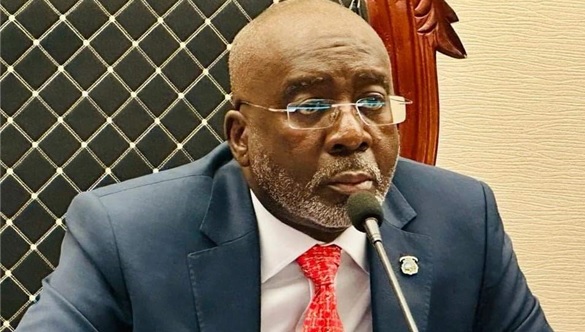On June 26, 2024, the U.S. Department of State released the 2023 International Religious Freedom Report (IRFR). The report highlights various aspects of religious freedom in Liberia, as outlined in its executive summary. It emphasizes that the constitution of Liberia guarantees the separation of religion and state, ensuring freedom of thought, conscience, and religion for all citizens, except when limited by law for reasons of public safety, order, health, morals, or the rights of others. The constitution also ensures equal protection under the law and prohibits religious tests for office and the establishment of a state religion.
In the lead-up to the October national elections, several political candidates utilized churches as platforms to deliver campaign speeches, criticize opponents, express views on the national observance of Islamic holidays, and debate Liberia’s status as a secular state. Sheikh Abubakar Sumaworo, Grand Mufti of the Fatwa Council of Liberia, called for unity and restraint among Muslims amidst public calls to restrict Islamic holiday observances and return the country to an official Christian state.
The report also highlights the efforts of the National Spiritual Assembly of the Baha’i Faith, which worked with the Center for National Documents and Records Agency to gain government recognition of Baha’i marriages. Additionally, the Baha’i National Spiritual Assembly explored joining the Inter-Religious Council of Liberia (IRCL), though the IRCL’s constitution currently restricts membership to the Liberia Council of Churches and the National Muslim Council of Liberia.
Several religious organizations protested against the forced initiation and occasional abduction of their members by leaders of traditional secret societies in rural areas. In Grand Gedeh County, the Baha’i community reached an agreement with traditional leaders to handle accusations of witchcraft within their community rather than turning individuals over to traditional authorities.
U.S. embassy officials regularly met with various civil society and religious figures to discuss religious tolerance and emphasize peaceful reconciliation practices, addressing the lingering effects of Liberia’s civil wars.
Religious Demography
The U.S. government estimates Liberia’s population at 5.3 million as of mid-2023. According to the 2022 National Population and Housing Census, the population is predominantly Christian (84.9%), with Muslims making up 12%, individuals with no religious affiliation at 2.6%, and adherents of traditional indigenous religious beliefs at 0.5%. Other religious groups, including Baha’is, Buddhists, Hindus, Jews, and Sikhs, constitute less than 0.1%. However, Muslim organizations claim that Muslims may constitute up to 20% of the population.
Christian denominations in Liberia include African Methodist Episcopal, African Methodist Episcopal Zion, Baptist, The Church of Jesus Christ of Latter-day Saints, Episcopal, Jehovah’s Witnesses, Lutheran, Presbyterian, Roman Catholic, Seventh-day Adventist, United Methodist, and various Pentecostal churches. The largest Christian denomination is the United Methodist Church, according to the Set Free Alliance, a U.S.-based Christian outreach organization. Most Muslims in Liberia are Sunni, with small Shia and Ahmadi communities also present. Many Liberians incorporate elements of indigenous traditional beliefs into their religious practices.
Christians and Muslims reside throughout Liberia, with specific ethnic groups such as the Mandingo and Fula being predominantly Muslim and living across the country. The Vai ethnic group, also mostly Muslim, resides mainly in Grand Cape Mount County in the west. Traditional secret societies, such as Poro (for males) and Sande (for females), combine traditional religious and cultural practices and are present in northern, western, and central Liberia. Other traditional societies, like the Kui and the Bodio (priests of the Glebo people), are primarily in the southeast.
Status of Government Respect for Religious Freedom
Legal Framework
The constitution mandates the separation of religion and state and guarantees freedom of thought, conscience, and religion. It prohibits hindrance in exercising these rights except as required by law for public safety, order, health, morals, or others’ rights. The constitution also provides equal protection under the law and prohibits political parties from excluding members based on religious affiliation. No religious group is granted exclusive privileges or preferences, and the establishment of a state religion is forbidden.
The government requires all religious groups, except indigenous ones operating under customary law, to register their articles of incorporation and organizational statements of purpose. Local religious organizations register with the Ministry of Foreign Affairs, paying a one-time fee of 7,500 Liberian dollars (L$) ($40) and an annual fee of L$3,500 ($19). Foreign religious organizations pay L$78,000 ($410) annually and a one-time fee of L$96,000 ($510). Notarizing articles of incorporation costs between L$1,500 to L$2,000 ($8 to $11), and an additional L$1,500 ($8) is required for a registered copy. The Ministry of Finance and Development Planning issues proof of accreditation for these documents. Religious organizations can also register at the Liberia Business Registry and may qualify for income tax exemptions and duty-free privileges on imported goods.
High-level government officials must take an oath ending with “So help me God” when assuming office, with Christians typically kissing the Bible and Muslims the Quran. Public schools offer nonsectarian religious and moral education, covering various religious traditions and emphasizing moral values.







